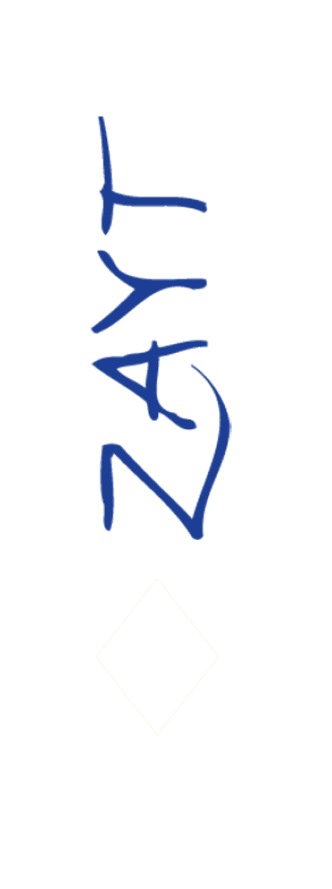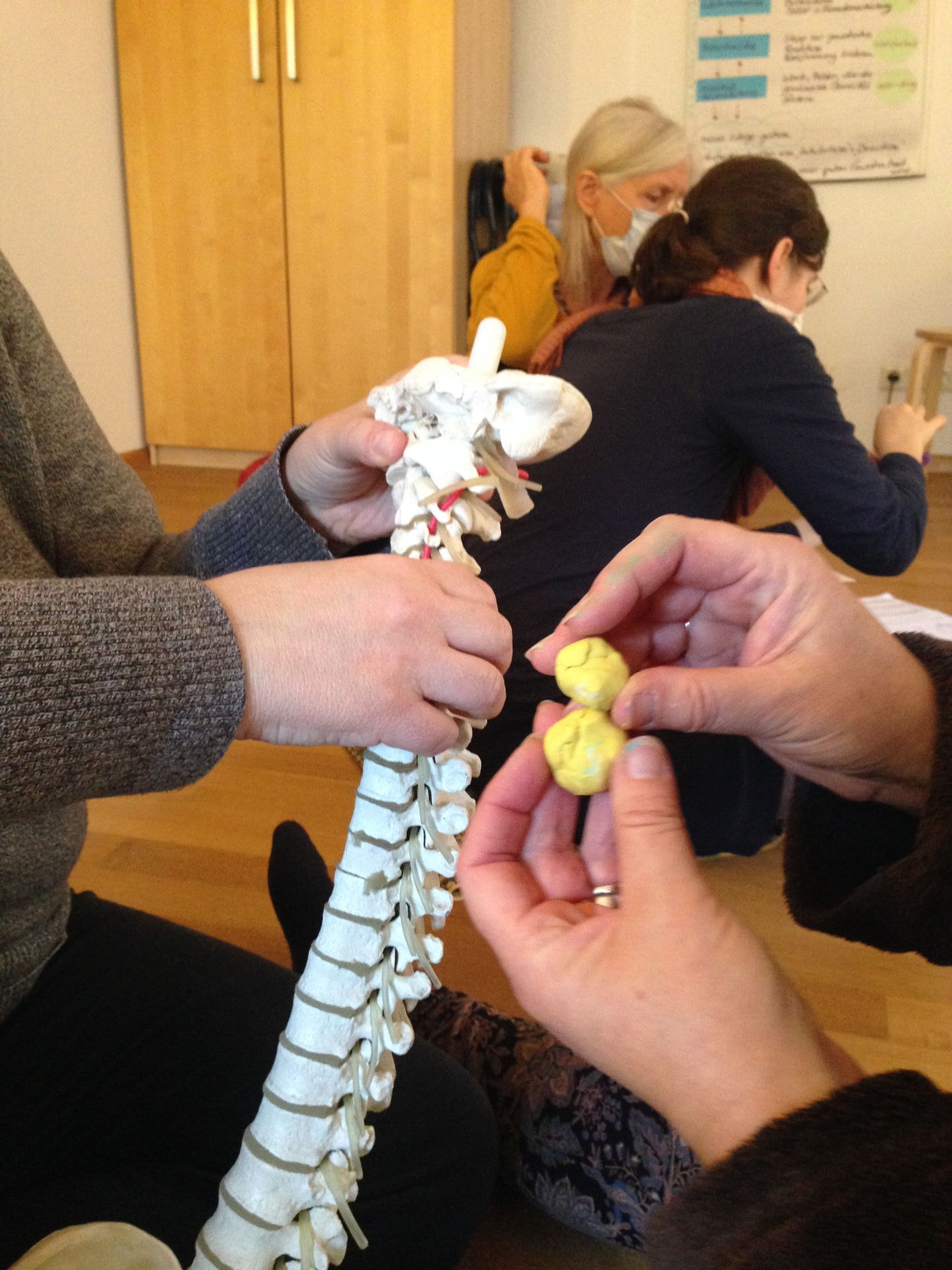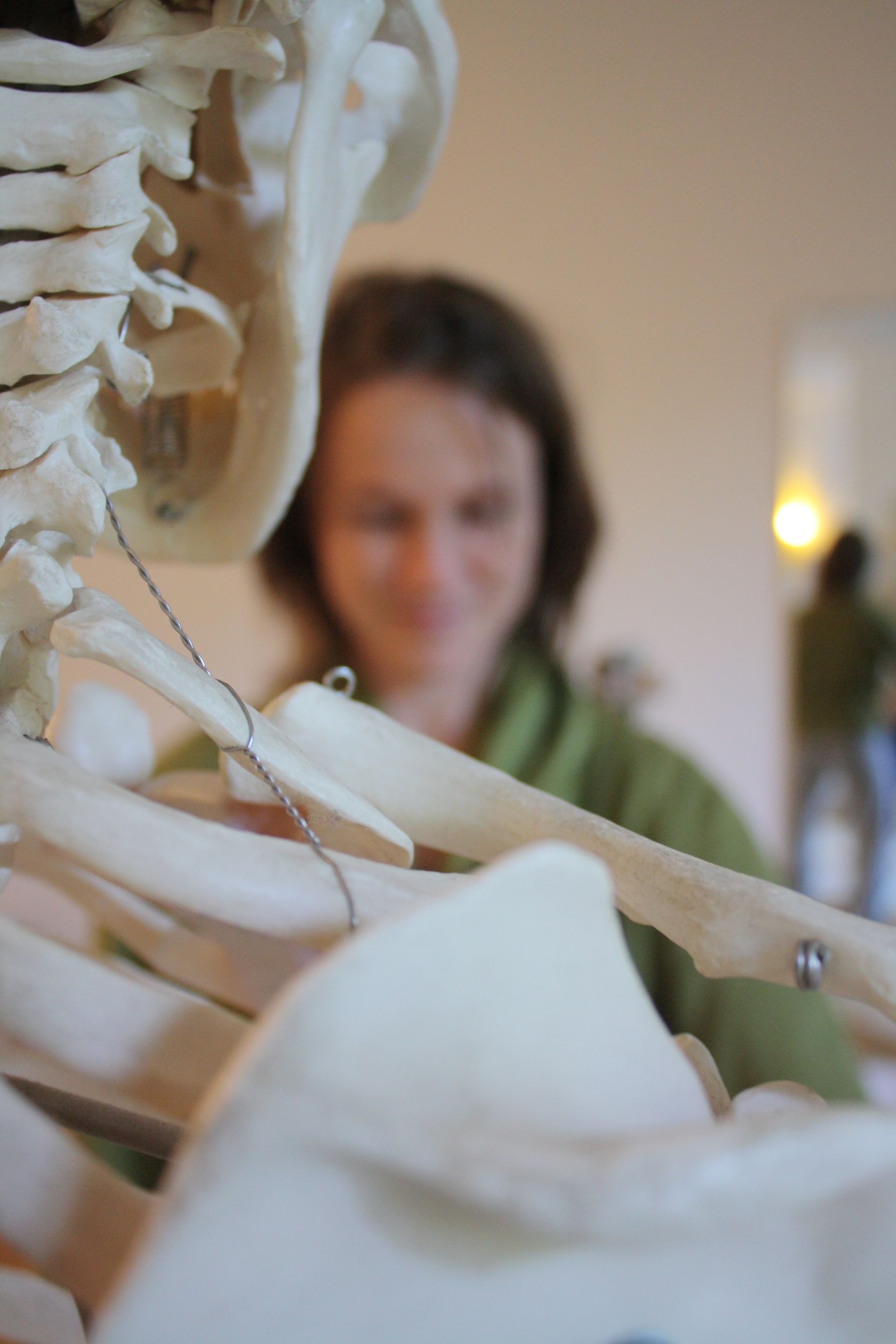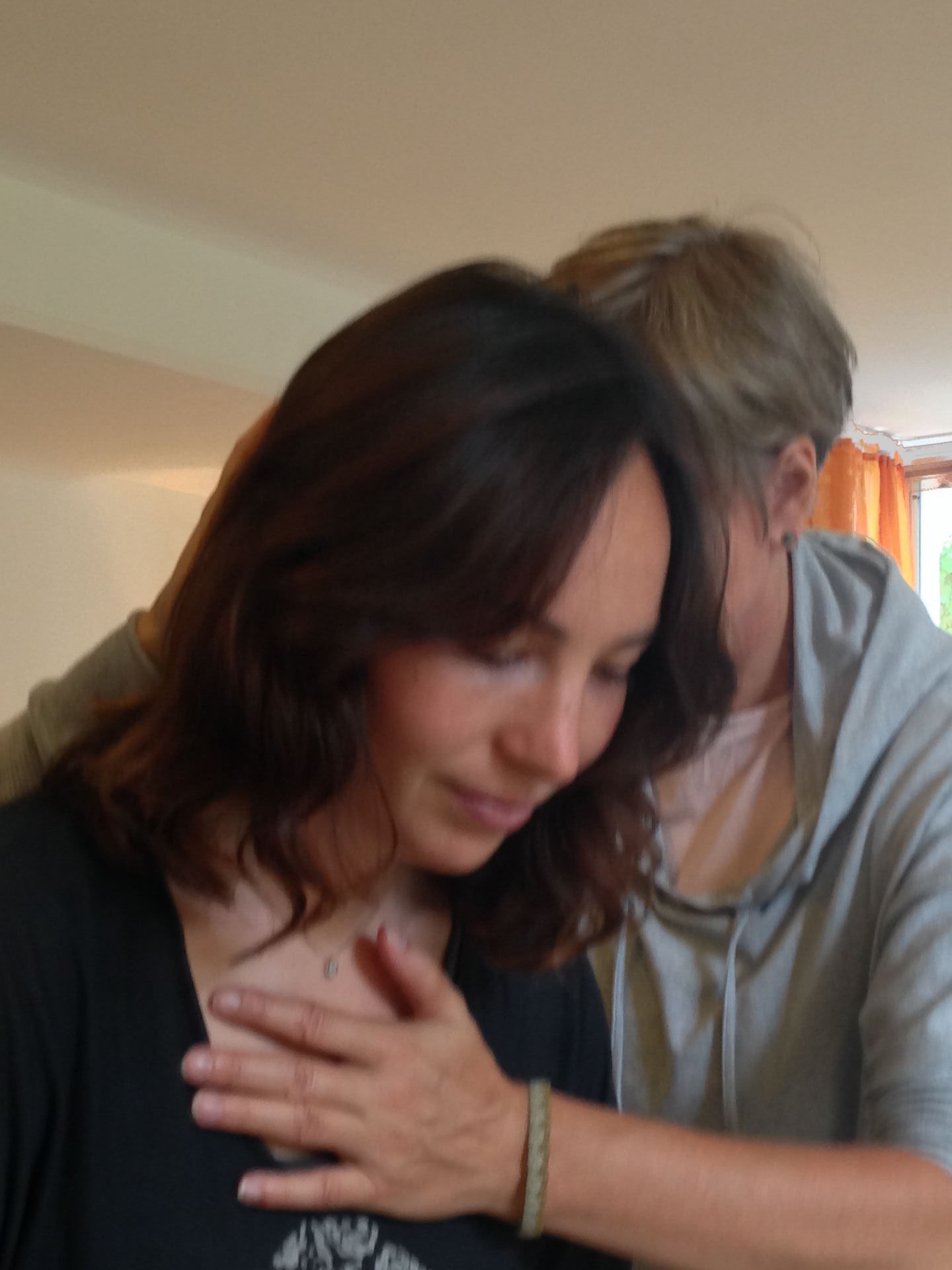Teacher Training in Alexander Technique
The training to become a teacher of the Alexander Technique imparts a comprehensive competence in the constructive healing techniques of body and psyche. It is particularly suitable for people who work in the educational, artistic or healing professions.
During the training you will learn how to holistically accompany change processes in relation to stressful movement and posture habits as well as patterns that generate stress.
The three-year training also allows you an intensive process of personal development - towards more physical relaxation and inner freedom. Lessons take place four half days a week and can be part-time. The entire training comprises 1600 hours and enables the students to teach the Alexander Technique freelance in private practice, in companies or institutions after graduation. The training institute is a member of the Alexander Technique Association Germany (ATVD) and the Affiliated Societies (ATAS).
The content of the training
Practice work on yourself
- Differentiation of perception and assessment of physical and mental processes
- development of a good holistic self-use for oneself and work with a student
- application of the Alexander principles in everyday and complex actions such as walking, standing, cycling, making music, speaking, working on the computer, yoga, Etc.
Hands-on work with a student
- Training of the hands as a perception instrument for physical coordination, balance, tone, etc.,
- as well as for conveying alignment through healthy and body-appropriate movement
- and for promoting the deep sensitivity of the student.
- Tactile and verbal conveyance of mental instructions and pausing
Theory
- Primary and secondary literature on the Alexander Technique and other relevant subject areas such as neurology, physiology, philosophy, psychology,
- movement learning, pattern formation, adaptation,
- learning change, relearning/rerouting
- sensory perception, introspection, exteroception, etc.
- Pausing (inhibition), non-doing
- mental instructions (giving directions)
- connections of use and functioning
Anatomy/ physiology/ orthopaedics
- Experiential anatomy (skeleton, muscles),
- biomechanics
- neurophysiology
- general pathology - especially in AT-relevant areas such as the pathology of the spine and joints as well as the problem area of back and neck pain, etc.
Psychology and philosophy
- Theory and practice of communication and interaction
- Model ideas about the interaction of psyche, body, energy and consciousness
- Self-awareness to reflect on one's own psycho-physical learning processes
Supervision with test students
- As part of the first independent teaching in the last semester of training, the students receive supervision both in the class context and in individual lessons with the trial student.
Supervised teaching experiences
- In the third year of training, the first lectures and introductory courses or job-specific offers in the Alexander Technique are discussed, practiced and supervised in class.
- School visits to institutions such as music schools, offices, etc.
- to present the Alexander Technique the training class to introduce the AT and to familiarize the students with working with groups at an early stage
Thesis
- The written work is divided into a theoretical part for understanding AT and a personal part in relation to one's own learning process, application in the professional and private environment and the first teaching steps with the supervised students.
The training is suitable for:
- People who want to learn a body-oriented profession with which they can support profound change and growth processes
- People who work in the performing arts (e.g. musicians, dancers, actors, etc.)
- People who work pedagogically (e.g. in schools, kindergartens, in adult education)
- People who work therapeutically and want to learn a supplementary method
Teachers and organizational details
Olivia Rohr
Teacher of the Alexander Technique since 1992, trainer since 2002
Diploma biology
Yoga teacher since 1989, trainer since 2014
Further training in person-centered counseling, new dance, Dorn method, pranayama with Dr. Srikrishna, meditation, etc.
Renate Wehner
Teacher of the Alexander Technique since 1992, trainer since 2002
Graduate social worker
Trainer and consultant for person-centred counseling since 2011
Teacher for new dance/contact improvisation
Advanced training in spiral dynamics, pranayama, meditation
More teachers
Marina Teixeira Lehmann, Celine Chevalier, Karin Traut, and Gabriela Scheinpflug
Moderator and guest teacher
Uli Bitter
International guest teacher
Caren Bayer (USA, New York)
Tommy Thompson (USA, Massachussetts)
Alex Farkas
Gal Ben-Or
Duration of the training
1600 hours spread over 3 years (approx. 14 hours a week and some weekends).
The holidays are based on the school holidays in Baden-Württemberg.
Training costs
36 monthly installments of 460 euros each
Location of the training
ZAYT
Center for Alexander Technique, Yoga, Dance and Counselling
Marienstr. 8, 79098 Freiburg
Phone 0761-7073433
www.zayt.de, info@zayt.de






